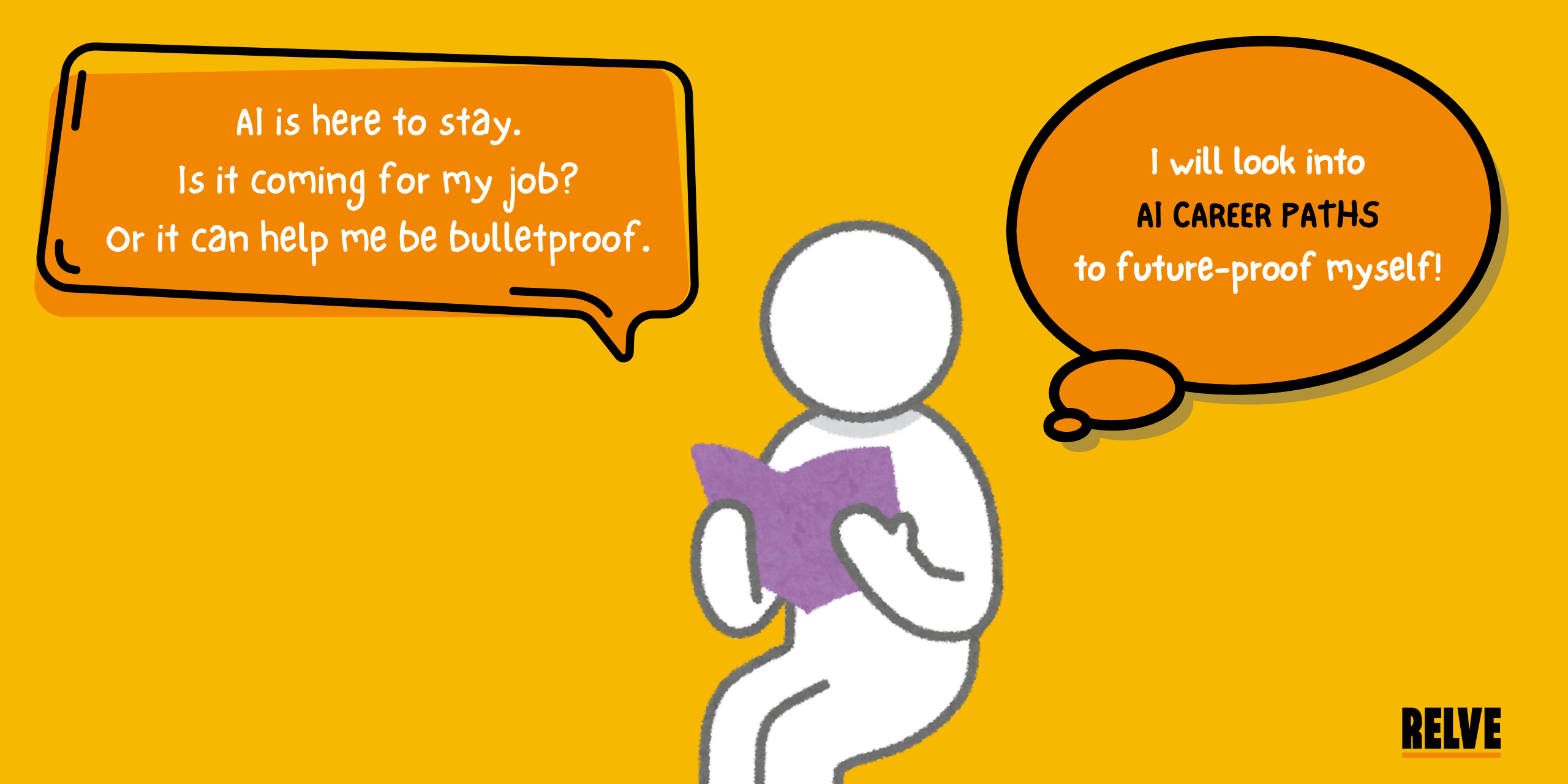Worldwide generative AI (GenAI) spending is expected to total $644 billion in 2025, an increase of 76.4% from 2024. The AI space is booming, which means new grads and industry veterans alike need to explore AI career paths to stay current and future-proof.
In this guide, we’ll walk you through the key AI roles, skills required, and trends shaping the future of AI careers.
Why Should You Explore AI Career Paths?
Gartner reports that the number of AI-related job postings increased by over 30% annually. This rapid expansion reflects how businesses across sectors – healthcare, finance, automotive, and more – are adopting AI to improve efficiency and innovation.
The growing demand means there are numerous career paths in AI, suitable for a wide range of skills and interests.
What Careers can I pursue with AI?
One of the biggest challenges in career planning is the sheer number of career paths in artificial intelligence to choose from. The good news is – any career can benefit from AI-powered tools and learning paths.
If you want a fully dedicated AI career path:
| AI Career Path | Description |
|---|---|
| Machine Learning Engineer | Develop algorithms that allow machines to learn and improve from experience. Expected salary: $112K-$145K/year (Glassdoor). |
| Data Scientist | Analyze and interpret complex data to help organizations make data-driven decisions. |
| AI Research Scientist | Conduct research to develop new AI methods and push the boundaries of what AI can achieve. |
| AI Product Manager | Bridge the gap between AI technology and business needs by managing AI-driven products and solutions. |
| AI Ethics Specialist | Address ethical issues around AI deployment, including bias, privacy, and accountability. |
Alternatively, you can use AI to augment your current job role. Whether you’re working in finance, healthcare, marketing, or just about anything, generative AI can help you augment your output and work quality in a productive way.
And then there’s AI-assisted career advancement
With AI-assisted decision-making, you gain access to powerful insights that allow you to view career opportunities from a fresh perspective. You’ll be able to identify not only the best career options for your skills but also how to bridge any gaps and grow in your chosen field.
If you are worried about AI making human ingenuity redundant, fret not.
AI doesn’t replace the need for human intuition or passion – it enhances it, ensuring your career decisions are backed by real-time data and future trends.

How AI Can Empower Your Career Decisions with the Right Skills
AI can offer several benefits when it comes to career planning. From AI decision-making software that provides personalized recommendations to AI-driven career advice, the opportunities for smarter decision-making are endless.
Here are a few things that AI (specifically LLM tools like Open AI’s ChatGPT and Google’s Gemini) can help you gain a strong foundation in the work you’re doing:
AI doesn’t just generate career ideas – it provides structured paths for executing them, helping individuals take actionable steps toward growth.
The Potential Risks of AI in Decision-Making Processes
While AI in decision-making offers a wealth of benefits, it’s important to acknowledge the risks that come with relying too heavily on technology. AI is incredibly powerful, but it’s not foolproof. There are concerns about AI decision-making ethics, especially when it comes to bias, data privacy, and fairness. It’s essential to remember that AI decision-making pros and cons are part of the equation.
Another concern is the human factor in AI-based decision-making. AI can process vast amounts of data and offer insights, but it’s up to you to apply these insights with compassion, creativity, and intuition. AI should be a tool for empowerment, not a replacement for human judgment.
Conclusion: Embrace AI for Smarter Career Growth
The World Economic Forum says AI is amongst the top five jobs of the future.
The future of career decision-making is AI-enhanced. Whether you’re exploring artificial intelligence careers or mapping out your artificial intelligence career paths, AI-powered decision-making can provide the insights and guidance you need to succeed.
Remember, AI is not here to replace you – it’s here to help you be the best version of yourself. The career path you choose is still yours to define, but with AI, you have access to future-proof insights that can help you plan your journey.
